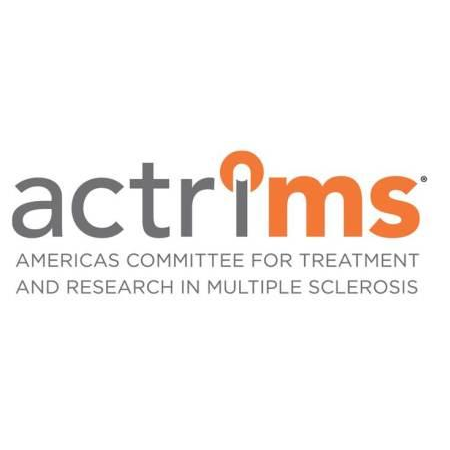
BTK Inhibitor Evobrutinib Displays Superior Efficacy Compared With Anti-CD20 Treatment for MS

A preclinical assessment of evobrutinib showed it demonstrated superior efficacy in targeting compartmentalized neuroinflammation in multiple sclerosis compared with anti-CD20 treatment.
New data from a preclinical assessment onevobrutinib (EMD Serono), a highly selective central nervous system (CNS)-penetrant Bruton tyrosine kinase (BTK) inhibitor, demonstrated superior efficacy compared with anti-CD20 treatment for targeting compartmentalized neuroinflammation in multiple sclerosis (MS).1 The findings support the BTK inhibitor as a promising therapy for persistently targeting neuroinflammation and disease progression in MS.
Evobrutinib reduced both disease severity (65% reduction; P <.0001) and immunopathological parameters of disease (56% reduction; P <.01) in progressive-like experimental autoimmune encephalitis mice (pEAE) compared with anti-CD20 (clone: SA271G2) treatment. The favorable effects of evobrutinib paralleled with a significant gain in body weight and decrease in cumulative disease score in comparison with anti-CD20 treatment (54% disease score reduction; P <.001).
The results were presented in a poster at the annual
Alvarez and colleagues wrote, “The observed improvements in clinical, immunological, and neuropathological parameters of disease in pEAE mice treated with evobrutinib illustrate the importance of compartmentalized neuroinflammation for disease progression. The limited effect of anti-CD20 treatment confirms the insufficient disease inhibition potential of antibody-based therapies when targeting intrathecal B cells.”1
Assessments were conducted preclinically for comparing the therapeutic potential of evobrutinib and anti-CD20 antibody treatment on MS progression using a pEAE mouse model. Additionally assessed with the pEAE mice were clinical outcomes and their correlation with CNS immunopathological parameters to reiterate the main aspects of disease progression in MS.
The BTK inhibitor significantly reduced the number and activation of lymphoid and myeloid cells, lessening neuroinflammation, Alvarez et al noted. In addition, evobrutinib significantly reduced the extent of submeningeal demyelination both in the brain (44% reduction; P <.01) and the spinal cord (42% reduction; P <.01).
“In MS, compartmentalized neuroinflammation often starts early and is characterized by an accumulation of persistent B cell-rich aggregates within the CNS. Such compartmentalized neuroinflammation is predictive of both poor clinical outcomes and rapid disability progression,” Alvarez and colleagues noted.1 “B cells located in the CNS may be protected from established MS therapies such as anti-CD20 antibodies. Recently, CNS-penetrant small molecules directed against BTK, which plays a critical role in B cell activation, proliferation, and survival, have emerged with the potential to target compartmentalized neuroinflammation.”
Evobrutinib is currently being evaluated in 2 pivotal phase 3 studies, both expected to conclude in September 2023. The trials—evolutionRMS 1 (NCT04338022) and evolutionRMS 2 (NCT04338061)––are multicenter, randomized, parallel-group, double-blind, double- dummy, active-controlled studies comparing evobrutinib and teriflunomide (Aubagio; Sanofi) in adults with relapsing MS.
Previously, at the 2022 ACTRIMS Forum, held February 24-26, in West Palm Beach, Florida, Alvarez presented data from pEAE mice displaying the benefits of targeting BTK to reduce CNS-compartmentalized inflammation in MS in the
In the 2022 presentation, pEAE mice were observed in acute and the progressive phases. Daily oral evobrutinib showed a significant reduction in not only the peak of the disease in the acute phase, but later in the disease process. In addition, BTK was highly expressed by CD19 B-cells and colocalized with Iba1 and with CD11b microglia/myeloid cells.
Effects of evobrutinib for reducing disease severity and improving immunopathological parameters remained consistent regardless of treatment with either prophylactic or therapeutic paradigms. Level of acute attack reduced following treatment, with stabilization of the disease up to 20 days post onset. This correlated with changes in body weight and the decrease in maximum disease score as compared with the vehicle control-treated pEAE mice.
REFERENCES
1. Kebir H, Li C, May MJ, Church ME, Boschert U, Alvarez JI. The Bruton’s Tyrosine Kinase Inhibitor Evobrutinib Demonstrates Superior Efficacy in Targeting Compartmentalized Neuroinflammation Compared to Anti-CD20 Treatment. Presented at ACTRIMS Forum 2023; February 23-25; San Diego, California. Abstract P149.
2. Kebir H, Li C, May MJ, Church ME, Boschert U, Alvarez JI. Effectiveness of the Bruton’s tyrosine kinase inhibitor evobrutinib in a novel model for compartmentalized neuroinflammation in multiple sclerosis. Presented at: ACTRIMS Forum 2022; February 24-26; West Palm Beach, Florida. Abstract CE1.3
Newsletter
Keep your finger on the pulse of neurology—subscribe to NeurologyLive for expert interviews, new data, and breakthrough treatment updates.










